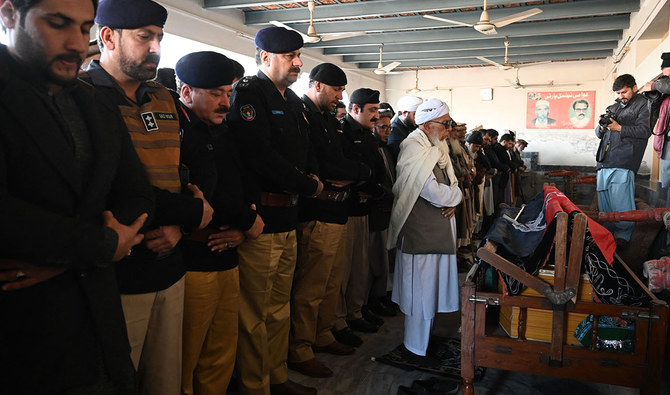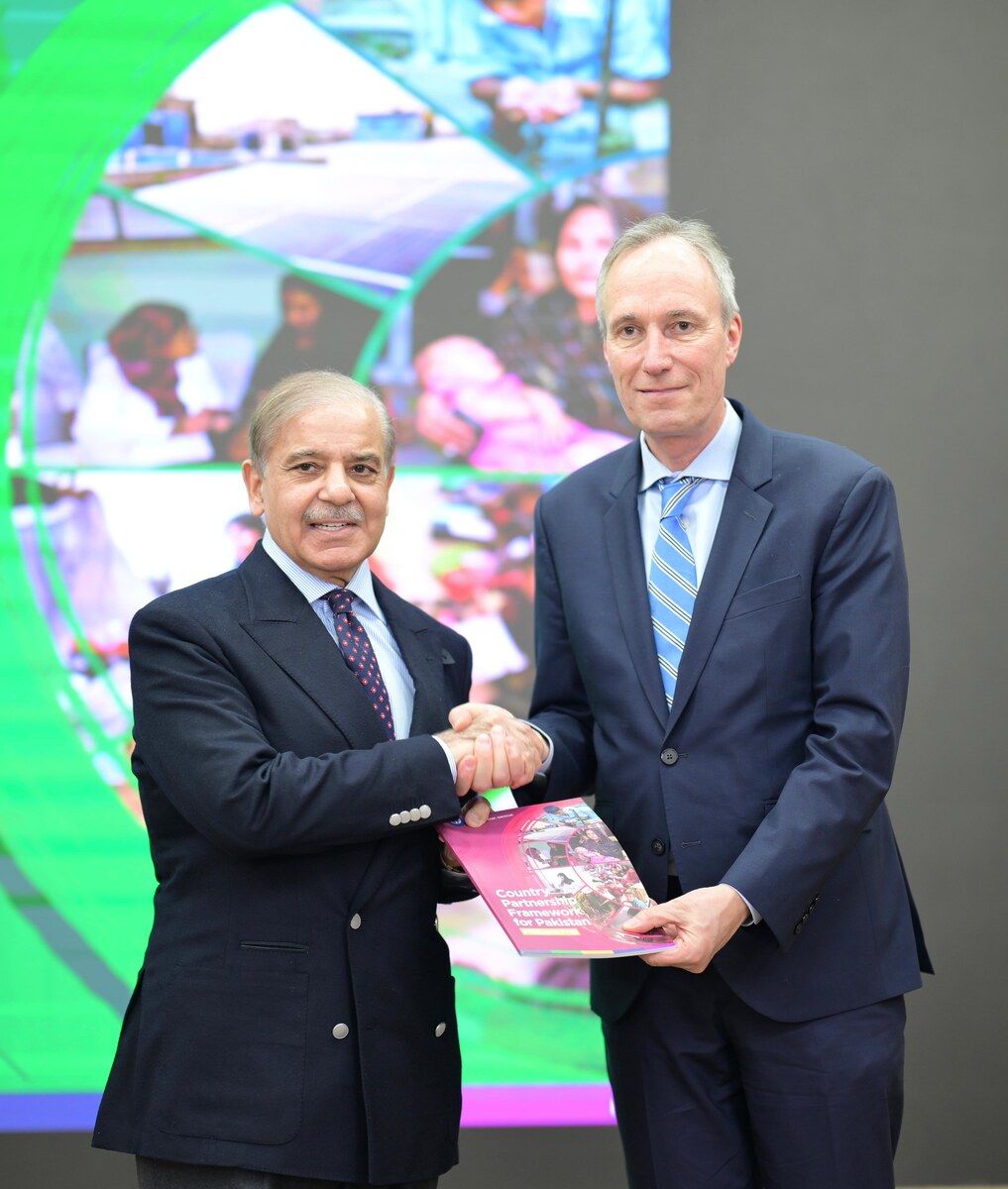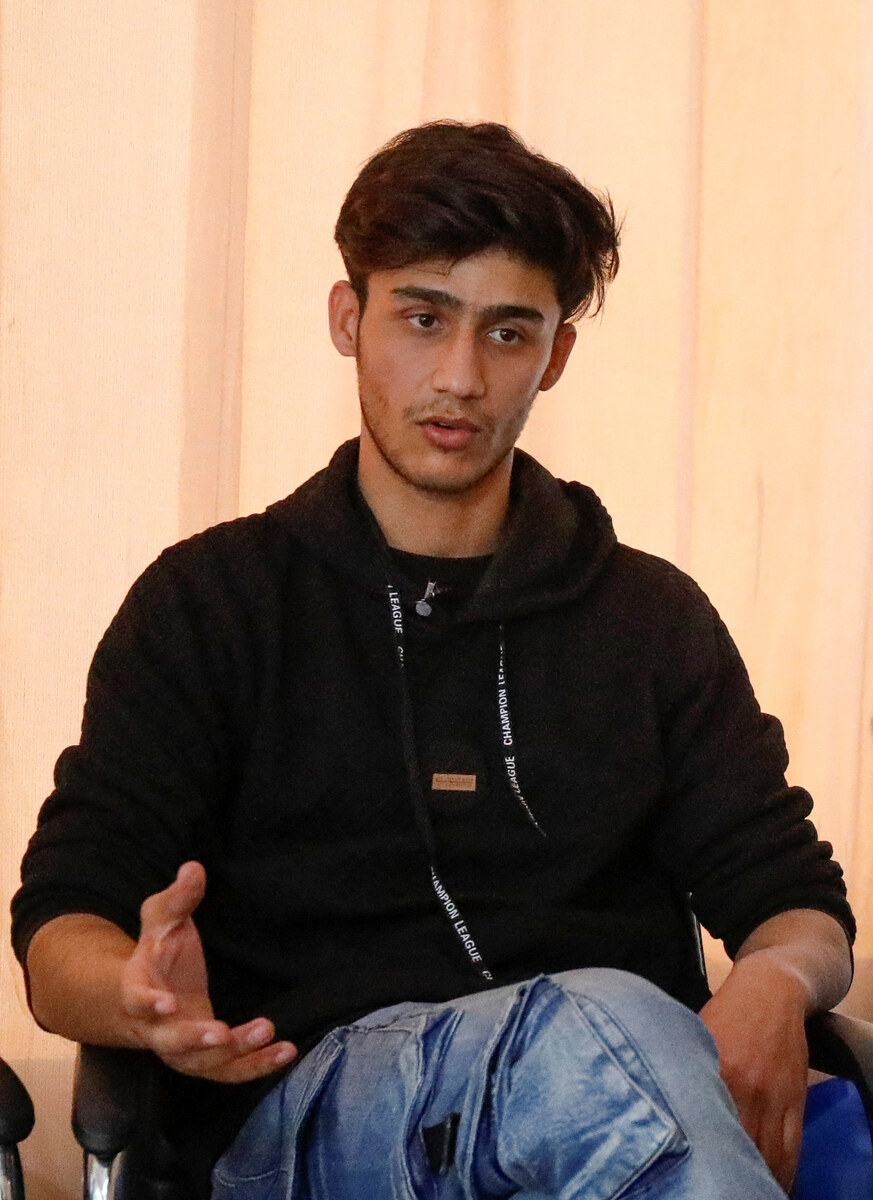ISLAMABAD: The provincial chief of police, Moazzam Jah Ansari, confirmed on Tuesday that a deadly attack on a mosque in the northwestern city of Peshawar a day earlier in which 100 people were killed was a suicide bombing.
Police said up to 350 worshipers were gathered for afternoon prayers on Monday when the explosion occurred at a mosque located inside a compound that is home to the headquarters of the Khyber Pakhtunkhwa provincial police.
Ansari, KP’s inspector-general of police, told reporters there was “no central command” of KP police inside the compound and security checks were done at the entrance gate only.
“Over a time period, through whatever means, little by little, the [explosive] material was brought here, and after bringing it here, the suicide bomber, in the guise of someone’s guest [entered the compound],” Ansari said.
The militant then blew himself up inside the mosque, the top cop added.
Ansari said the suspect had managed to enter the compound because an estimated 1,500-2,000 people daily visited the area to register their complaints or meet family members as the offices of the Capital City Police Officer and the Senior Superintendent of Police were located inside and many police officers also resided there.
“We are also probing the security lapse and I have formed a separate inquiry committee, headed by the CCPO Peshawar, which will conduct the investigation,” he said, adding that police would also investigate why security checking was only being done at the compound’s entrance.
He said an inter-agency joint investigation team, comprising police officers, members of Pakistan’s intelligence agencies, and other investigative agencies, was being formed to conduct a probe into the matter.
This team, he said, would be led by a senior Deputy Inspector General who would not be part of Peshawar police.
Ansari said specimens of the suicide bomber’s “severed head” had been sent for DNA testing to ascertain his identity.
“We will investigate and make it clear who the suicide bomber’s facilitators were,” he said. “We will also focus on where he came from, how he was able to bring explosives into the compound and all characters involved in it will be brought to book.”
In response to a question, the senior official said an estimated 10-12kg of explosives were used in the blast:
“The explosive material did not cause the most damage ... The shockwaves from the explosion caused the roof [of the mosque] to collapse, which caused people to be trapped under the debris.”
Ansari said the rescue operation had been completed, and all the injured were being treated. Some funeral prayers had been offered on Monday while more would be held today, Tuesday.
Ansari said while investigations were still ongoing, police suspected that some members of the militant outfit Jamaat-ul-Ahrar were involved, referring to a splinter faction of the Pakistani Taliban that operates in Afghanistan and Pakistan and has claimed responsibility for some of the deadliest attacks in Pakistan.
Separately, Azam Khan, KP’s caretaker chief minister, told reporters the death toll had surged to 100.
“Hundred people have been martyred while 221 people in total have been injured,” Khan said.
On Monday night, the Pakistani Taliban group said the militant group was not behind the explosion while one commander of the group said on Twitter the outfit was responsible for the latest assault.
“Tehreek-e-Taliban Pakistan (TTP) has nothing to do with this incident,” the group said in a statement shared with journalists. “Any action in mosques, madrasas, funeral homes and other sacred places is an impeachable crime.”
However, TTP commander Sarbakaf Mohmand claimed responsibility for the attack in a post on Twitter. His account has since been suspended.
While the TTP as a group denied responsibility for the bombing, it has recently carried out similar attacks, with assaults on the rise since last November when the outlawed outfit called off a cease-fire signed with the government in May.

















